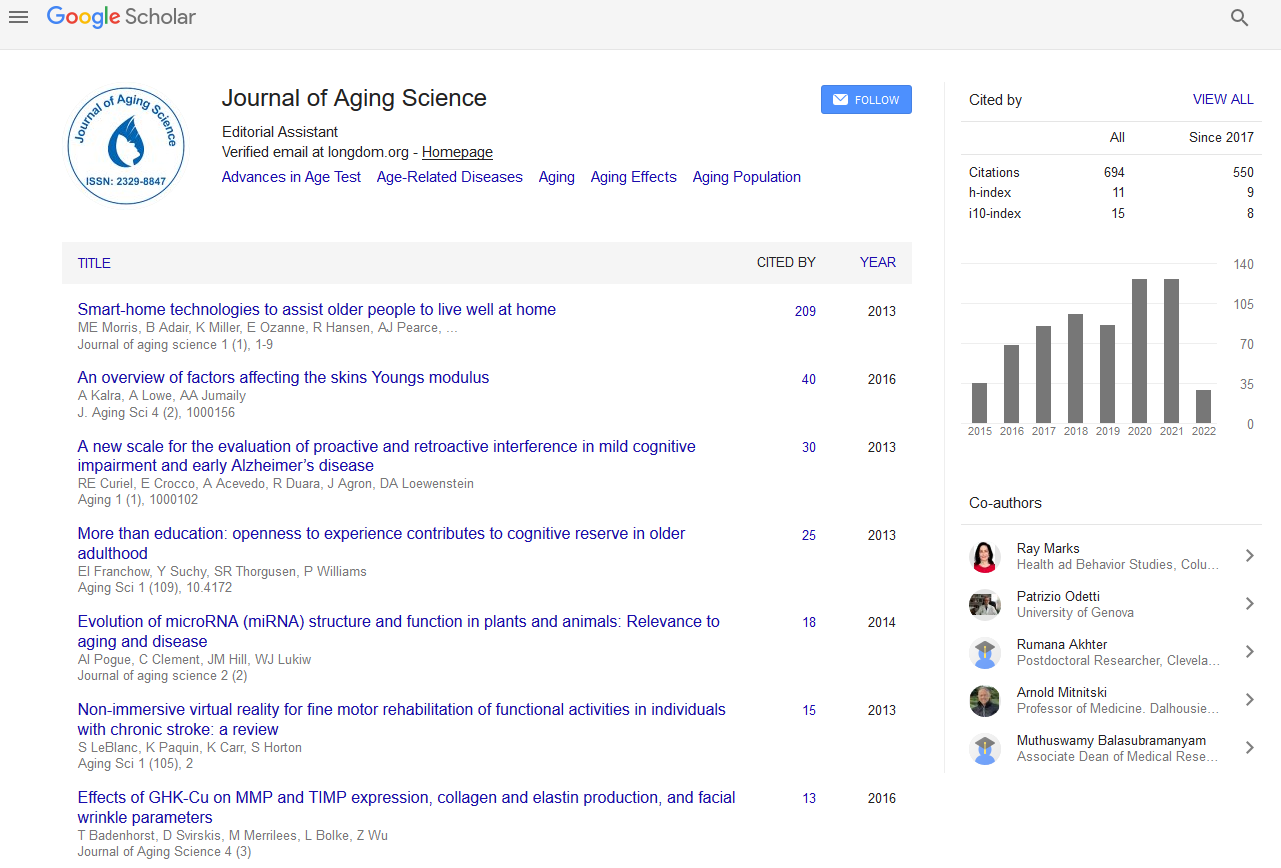PMC/PubMed Indexed Articles
Indexed In
- Open J Gate
- Academic Keys
- JournalTOCs
- ResearchBible
- RefSeek
- Hamdard University
- EBSCO A-Z
- OCLC- WorldCat
- Publons
- Geneva Foundation for Medical Education and Research
- Euro Pub
- Google Scholar
Useful Links
Share This Page
Journal Flyer

Open Access Journals
- Agri and Aquaculture
- Biochemistry
- Bioinformatics & Systems Biology
- Business & Management
- Chemistry
- Clinical Sciences
- Engineering
- Food & Nutrition
- General Science
- Genetics & Molecular Biology
- Immunology & Microbiology
- Medical Sciences
- Neuroscience & Psychology
- Nursing & Health Care
- Pharmaceutical Sciences
Abstract
Oral Administration of Poly-pharmacy in Institutionalized Elderly Patients with Dysphagia
Juneo Cesar F, Bárbara Maori dos santos Oliveira
Background: Poly-pharmacy in older people is a major concern in nursing home residents. Different factors can modify oral medications status like swallowing difficulties.
Objective: The aim of this study was to describe the drug-food interactions in institutionalized elderly with dysphagia.
Methods: A descriptive, cross-sectional study was conducted with individualized data for 16 institutionalized older people ≥ 65 years of both sexes (13 women, 3 men) were examined from the Curitiba of Paraná State, Brazil. Data were collected from medical prescriptions and patients medical records. The prescriptions were analyzed for the potential drug interactions using the ATC (Anatomic Therapeutic Chemical) classification proposed by the World Health Organization. This Study all participants signed the informed consent.
Results: A total of 16 patients were included in the study, among them 12.5% were males and 87.5% were females. 12 prescriptions were examined with 171 molecules of drug orally. The most frequently used drugs were antipsychotic and anticonvulsant (87.5%), antihypertensive (81.25%), cardiovascular system drugs (75%) and gastrointestinal tract drugs (62.5%). The potential of food-drug interaction was seen in the prescriptions of elderly patients related to Alzheimer’s.
Conclusion: Cognitive impairment and use of poly-pharmacy increased the risk of toxic effects in dysphagia patients. Future studies to reduce poly-pharmacy and improve pharmacological appropriateness may facilitate the understanding of pharmacodynamic and pharmacokinetic effects caused by drugs.
Published Date: 2019-01-02; Received Date: 2018-11-21


